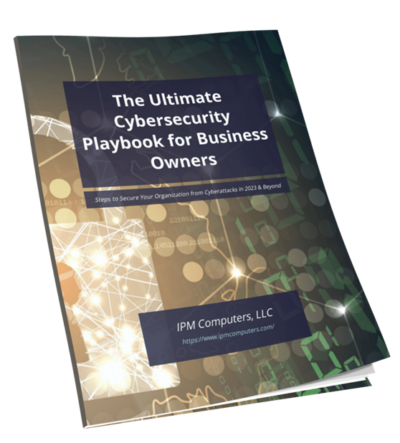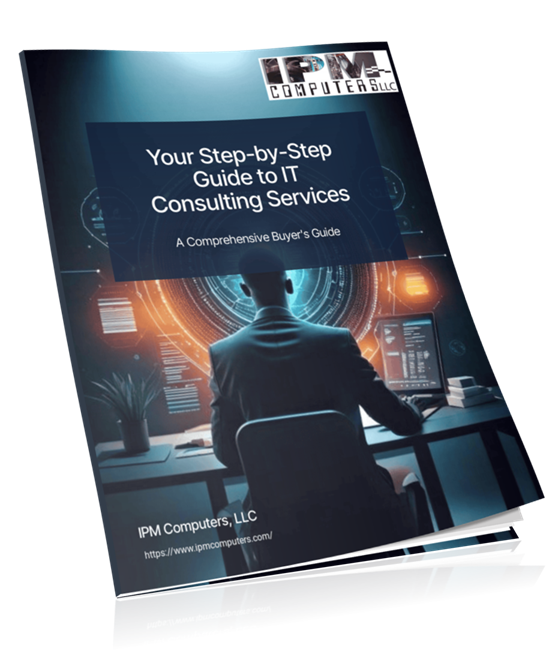Technology is integral for running operations smoothly and staying ahead of the competition. As companies face increasing demands to adapt, having effective IT strategies is a necessity for all businesses.
Good IT management makes processes more efficient while improving security, manages risks, and boosts overall business performance. On the other hand, companies without strong IT strategies often face challenges such as:
- Shortage of technology skills
- Growing threats to cybersecurity
- Wasteful use of resources
One solution to these problems is hiring a virtual Chief Information Officer (vCIO). This position provides businesses with expert IT advice without the need to hire a full-time executive. By working with a vCIO, organizations can:
- Align their technology projects with their business objectives
- Strengthen their cybersecurity measures
- Optimize their IT spending through personalized recommendations
The Role of a vCIO
A vCIO is an outsourced IT executive who provides strategic guidance without the commitment of a full-time employee. Organizations leverage vCIO services to gain expertise on-demand, allowing them to adapt quickly to changing technology landscapes.
Responsibilities of a vCIO
- Strategic Technology Planning: Develops long-term IT strategies aligned with business objectives.
- Budget Management: Oversees IT budgets, for cost-effective spending and resource allocation.
- Vendor Relations: Manages relationships with technology vendors, negotiating contracts and service agreements.
- Risk and Compliance Management: Identifies potential risks while being compliant with industry regulations.
- Network Monitoring and Data Analytics: Continuously analyzes performance metrics for optimal infrastructure management.
Comparing vCIO and CIO Roles
The distinction between a vCIO and a traditional CIO matters in terms of commitment, cost, and flexibility.
1. Full-time commitment vs. part-time contractor
A CIO typically functions as a full-time executive who immerses themselves in the daily operations and long-term strategy of an organization. In contrast, a vCIO operates as a part-time contractor, providing strategic insight without the need for a permanent presence.
2. Cost-effectiveness of hiring a vCIO
Engaging a vCIO can prove to be more economical than hiring a full-time CIO. The financial burden of salaries, benefits, and other related costs associated with full-time employees can be alleviated through flexible payment options offered by vCIO services. This offers businesses access to high-level expertise without the heavy financial investment.
3. Flexibility and scalability offered by vCIOs
vCIOs provide tailored support that scales according to your business’s evolving needs. As organizations grow or face changes in the market, having a vCIO allows for quick adjustments in strategy and execution, ensuring that technology continually aligns with business goals.
Advantages of Employing a vCIO in Your Organization
Engaging a vCIO offers numerous benefits that can enhance your organization’s IT capabilities. Consider the following advantages:
- On-demand expertise at lower costs: A vCIO provides access to seasoned professionals without the financial burden of a full-time executive salary. This arrangement allows you to leverage expert knowledge tailored to your specific needs while optimizing your budget.
- Enhanced cybersecurity and risk management strategies: Cyber threats are increasingly sophisticated. They implement robust security measures and proactively identify vulnerabilities. For instance, organizations utilizing vCIO services have successfully thwarted potential breaches by adopting comprehensive risk assessments and incident response plans, demonstrating the real-world impact of strategic guidance from a vCIO.
- Tailored IT recommendations to align with business goals: Every business has unique objectives that require customized IT solutions. A vCIO evaluates your current infrastructure and aligns technology initiatives with your overarching goals.
Transformative Technology Planning
The role of a vCIO in strategic technology planning is vital for aligning IT initiatives with business objectives. These strategies consider both current needs and future trends, thereby creating a robust framework for sustainable success.
Key components include:
- Technology Roadmapping: This process outlines the necessary steps to achieve strategic goals through technology implementation.
- Technology Integration: Successful implementations require seamless integration of new systems with existing infrastructure. A vCIO assesses your current environment and recommends solutions that enhance functionality without disrupting operations.
- Vendor Management: Collaboration with vendors is the key to obtaining the best tools and services. A vCIO negotiates contracts, evaluates vendor performance, and oversees that technologies work together harmoniously.
Investing in a vCIO transforms your IT infrastructure into a strategic asset, paving the way for innovative solutions that drive performance and competitive advantage.
Enhancing Value through Collaboration with Managed Service Providers
Managed service providers (MSPs) play a vital role in supporting your IT operations. Collaborating with MSPs allows your vCIO to focus on strategic initiatives while overseeing day-to-day IT needs.
Daily Operations vs. Strategic Direction
- MSPs focus on the day-to-day operational tasks, such as network monitoring, data backup, and help desk support. Their primary goal is to keep your IT infrastructure running smoothly.
- vCIOs, on the other hand, provide strategic direction. They analyze business objectives and align technology initiatives to meet those goals, offering insights into future trends and opportunities.
Benefits of Collaboration
The collaboration between vCIOs and MSPs creates a comprehensive IT management solution:
- Enhanced Service Delivery: With vCIOs providing strategic oversight, MSPs can focus on execution without losing sight of the bigger picture.
- Cost Optimization: Leveraging both services allows organizations to maximize their IT budget by reducing redundancies.
Overcoming IT Management Challenges
Organizations face several challenges in IT management, particularly due to an ongoing skills gap. Many businesses are struggling to find qualified personnel, which can hinder their technological progress. A vCIO provides a strategic solution by:
1. Bridging the Skills Gap
Through strategic hiring or outsourcing, a vCIO can help organizations acquire the necessary expertise without the long-term commitment of full-time employees.
2. Enhancing Cybersecurity
A vCIO can implement proactive measures such as:
- Regular security assessments
- Establishing incident response plans
- Compliance with industry regulations
Incorporating these strategies fosters a culture of security and vigilance within the organization. As remote collaboration becomes increasingly common, the need for secure systems and well-defined protocols rises. A vCIO’s guidance keeps your IT infrastructure resilient against potential threats while aligning with business objectives.
Increased Business Potential Through Strategic IT Alignment
Aligning IT strategy with business goals is paramount for any organization aiming to thrive.
Key benefits of employing a vCIO include:
- Tailored IT Strategies: Custom recommendations that correspond with your unique business objectives.
- Expert Guidance: Access to seasoned professionals who understand industry-specific challenges and opportunities.
- Proactive Risk Management: Implementation of robust cybersecurity measures to safeguard your organization.
Evaluate how a vCIO can drive your organization’s success through strategic alignment of technology and business goals. Investing in a vCIO can unlock new growth opportunities, streamline operations, and enhance overall efficiency.
Frequently Asked Questions About vCIOs
What is a vCIO and how does it differ from a traditional CIO?
A virtual Chief Information Officer (vCIO) is an outsourced executive who provides strategic IT guidance to businesses without being a full-time employee. Unlike a traditional CIO, who is typically on-site and involved in daily operations, a vCIO offers expertise on-demand and focuses on aligning IT strategies with business goals.
What are the key benefits of hiring a vCIO for my business?
Employing a vCIO can provide numerous advantages, including cost-effectiveness, access to on-demand expertise, enhanced cybersecurity measures, and tailored IT recommendations that align with your business objectives. This flexibility allows businesses to adapt their IT strategies as needed.
How does a vCIO collaborate with Managed Service Providers?
A vCIO works alongside Managed Service Providers (MSPs) to bridge the gap between daily operational management and strategic IT direction. While MSPs handle routine IT tasks, a vCIO focuses on long-term technology planning and alignment with business goals, leading to improved service delivery and cost optimization.
What role does a vCIO play in enhancing cybersecurity for businesses?
A vCIO plays a strengthens cybersecurity by developing risk management strategies and implementing proactive measures to mitigate threats. Their expertise helps organizations navigate the complexities of cybersecurity.
How can a vCIO assist in technology planning for my organization?
A vCIO can help develop comprehensive technology roadmaps that align with your business objectives. They focus on creating long-term IT strategies that incorporate technology integration and vendor management.
Why should my business consider hiring a virtual CIO now?
Given the increasing reliance on technology in business and the evolving landscape of IT challenges, hiring a vCIO can provide your organization with strategic advantages. A vCIO enhances overall performance through smart IT strategies, enabling businesses to remain competitive.






